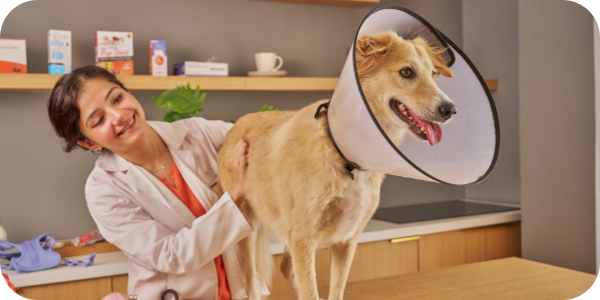Does your dog regularly scoot their bottom along the ground? They could be having trouble with their anal sacs (also referred to as anal glands).
Here’s a whiff of information on what can cause recurrent anal sac issues, how to recognise them in your pet, and how we can help!
What are the anal sacs?
The anal sacs are two little pockets that lie beneath the skin on either side of your pet’s anus. They are lined with glands that produce a smelly discharge – your pet’s signature “calling card”! This scent is released via small ducts when your pet poos, or sometimes when they are excited or scared.
Why do some pets get anal sac problems?
Anal sac problems can start if your pet’s sacs don’t empty properly. This is more common in small dogs, but can occur in any pet, particularly those who are overweight, have soft stools, or have underlying allergies.
If a pet’s anal sacs don’t empty properly, the discharge trapped inside tends to thicken and accumulate – this is known as anal sac impaction. Impacted anal sacs can then become infected – known as anal sacculitis. Anal sacculitis may then eventually progress to an anal sac abscess (a painful pocket of pus) – ouch!
What symptoms do anal sac issues cause?
Pets with impacted anal sacs often scoot their bottoms along the ground to try to relieve the discomfort. They may also lick or gnaw at their bottom.
If your pet’s anal sacs become infected, they will develop a painful swelling right near their anus. When an anal sac abscess ruptures, discharge (often blood-tinged) will be released, and your pet will appear to have a deep wound just beside their anus.
How can we help?
If you notice your dog scooting, it’s best to scoot on down to our clinic so one of our experienced team can check your pet’s back-end! Simple anal sac impaction can be relieved with a gentle expression technique, while anal sac infections usually require sedation for flushing and antibacterial/anti-inflammatory treatment.
For more information on common causes of itchiness in pets, consult our skin-savvy team!

